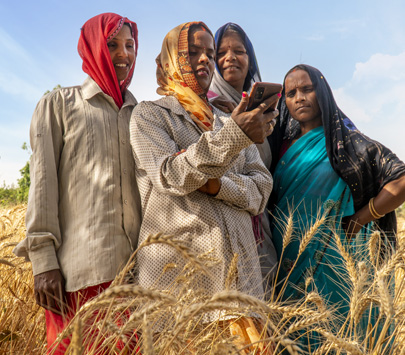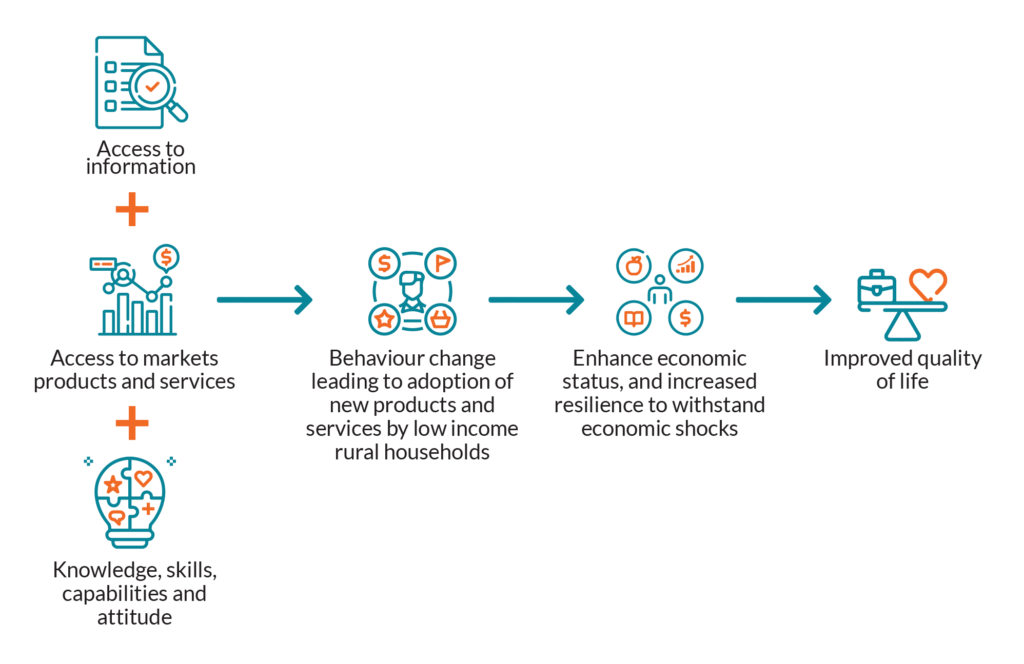
Grameen Foundation For Social Impact
At Grameen, we believe that enabling women with economic opportunities creates a ripple effect that benefits not only their families but also their entire communities. Our organization is renowned for pioneering innovative and scalable models that have positively impacted millions of low-income people.
Our Story
Grameen Foundation has been working in India since 2009 to strengthen the lives and livelihoods of low-income communities, especially women, through financial inclusion, digital innovation, and livelihood support.
Grameen Foundation USA, a US based global non-profit organization has supported the creation of two mission-driven Indian entities: Grameen Foundation India Private Limited (GFI) and Grameen Foundation for Social Impact (GFSI).
GFI and GFSI are proudly incorporated in India, and guided by India’s constitutional values of equality, dignity, and social justice. Over the years, both organizations have worked shoulder to shoulder with Indian partners, government bodies, and communities to advance inclusive growth and unlock opportunity across the country and supported the financial inclusion goal of the Indian government.
While the generic name “Grameen” reflects a global aspiration to end poverty, we wish to clarify unequivocally that Grameen Foundation India (GFI) and Grameen Foundation for Social Impact (GFSI) have no legal, financial, operational, or organizational connection or affiliation whatsoever with the Grameen Bank or Professor Muhammad Yunus. GFI and GFSI are entirely separate and independent Indian entities, conceived and built for India, by the Indian team, and in service of India’s development goals.
We remain unwavering in our commitment to the people of India. As a democracy built on diversity, strength, and self-determination, India inspires our work every day and it is here, in service of its people, that our mission continues.
Our Core Values
Respect
Integrity
Empathy
Excellence
Effectiveness
Sustainability
Inclusive
Participation
Grameen's Overarching Theory of Change

Grameen’s overarching theory of change is a standard framework, applied to its various programming areas, across the sectors of livelihoods, enterprise development, financial services, and health and nutrition. This overriding theory of change is based on three key pillars – Access to information, access to markets, products and services, and enhanced skills, capabilities and attitudes, which is applied to three core segments that Grameen targets. These are low-income people, particularly women, facing various disadvantages, smallholder farmers, and micro and small businesses.
























